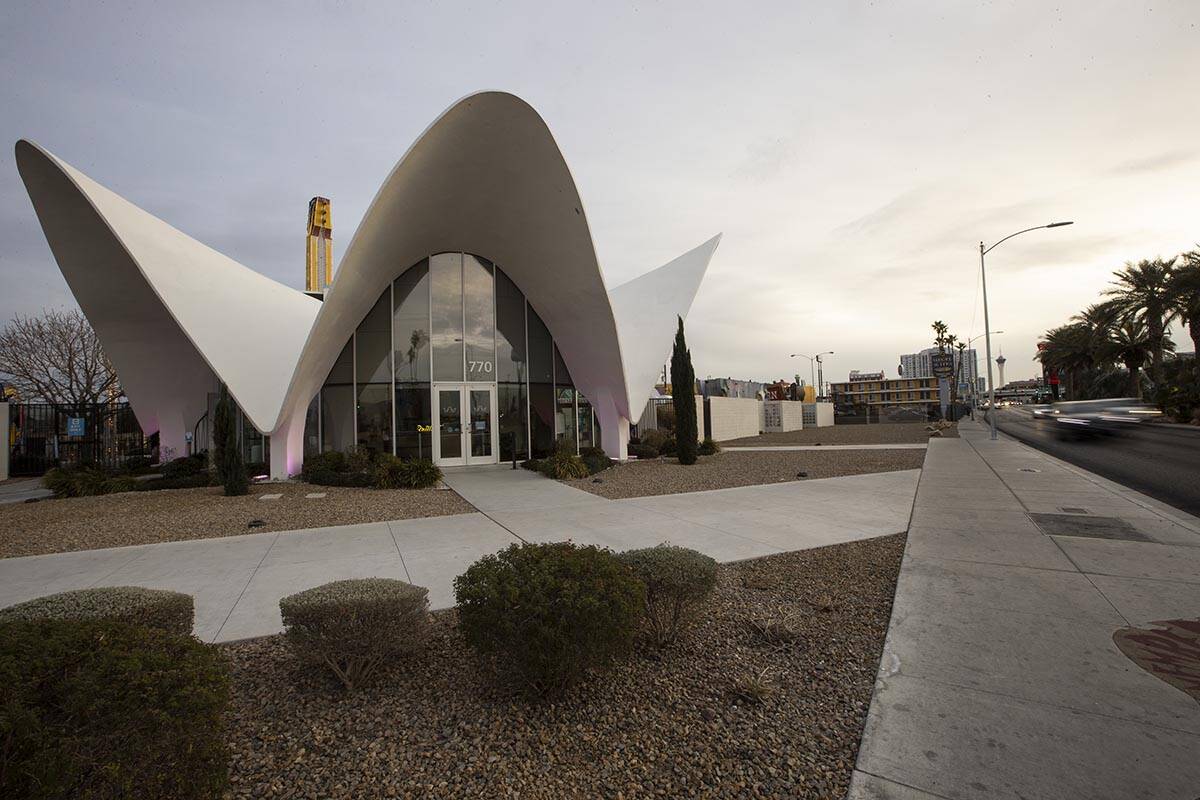Neon Museum still seeks to expand. Only somewhere else.

The Neon Museum, the outdoor memorial to vintage and flashy Las Vegas signage, may expand some day.
But that plan no longer involves the city-owned Reed Whipple Cultural Center, as pandemic-related impacts and new obligations from a recent national accreditation proved to be too much to overcome to proceed with a proposal signed off on in 2019.
The project, launched prior to the COVID-19 crisis under previous museum leadership, had called for the museum to double its footprint on Las Vegas Boulevard by entering the old cultural center across the street from the museum’s main Neon Boneyard.
But nearly three years after the plan was approved, the museum and city of Las Vegas on Wednesday ended an agreement that provided the museum with grant funding to support expansion operations into the vacant building.
The museum will now reimburse the city $1.1 million of the $1.6 million it was paid, and keep the remaining amount for security and other costs, according to a city staff report.
“In the end, we determined that the building would require pretty extensive work,” Neon Museum Executive Director Aaron Berger said Wednesday.
Problems with the expansion first publicly surfaced in December, when it was revealed that the museum had missed construction deadlines. At the time, Berger — who took the helm in July — said that the pandemic had delayed planning and fundraising for the project and that museum officials were reexamining financial estimates needed to undertake the expansion.
The former cultural center is in need of renovation after closing in summer 2016. That project phase was anticipated in May 2019 to cost $3.1 million, although it was unclear how estimates had changed over time.
Accreditation last year by the American Alliance of Museums added to the project’s complexity. Neon Museum officials embraced the achievement with open arms because less than 3 percent of the nation’s 33,000 museums get the recognition, according to Berger. But it also applies more stringent rules on how buildings are outfitted.
Under the plan that predated Berger’s arrival, the old cultural center’s back parking lot would have become the museum’s third neon-sign boneyard, adding to its main display and north gallery across the street. The building’s 8,000-square-foot theater was to be converted into an indoor gallery. And other areas were to be used for public demonstrations of neon artistry, classrooms, offices and storage.
While the museum is officially stepping away from plans to occupy the old Reed Whipple Cultural Center, Berger assured that the museum had not abandoned plans to grow.
“We are aggressively pursuing expansion opportunities in the city of Las Vegas,” he said.
Contact Shea Johnson at sjohnson@reviewjournal.com or 702-383-0272. Follow @Shea_LVRJ on Twitter.